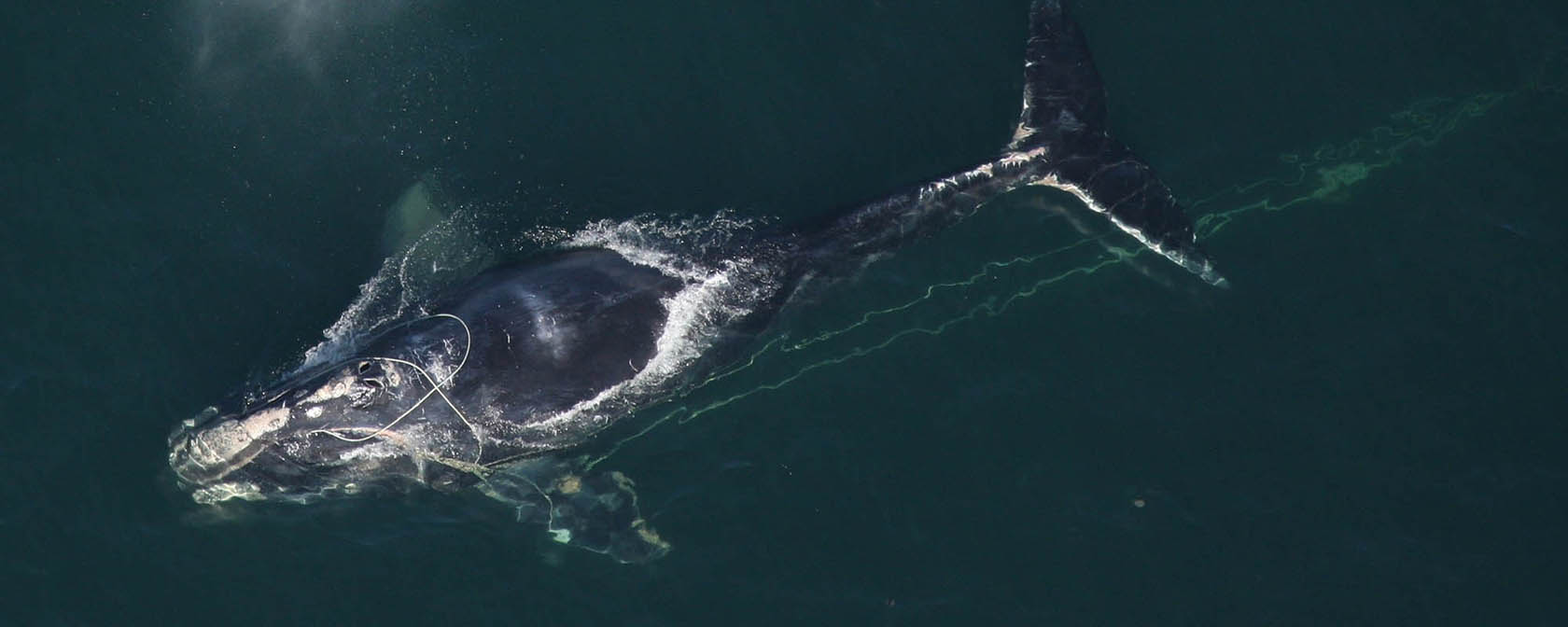With fewer than 400 individuals remaining on the planet, North Atlantic right whales are critically endangered. Originally decimated by commercial whalers, right whales began a slow recovery after passage of the Endangered Species Act in the 1970s. Now, sadly, they are once again on the decline as a result of human action—or inaction. Right whales move along the busy east coast of the United States and Canada, which places them quite literally in the path of danger.
The leading causes of right whale death are collisions with ships and other vessels and entanglement in heavy commercial fishing lines used in east coast lobster and crab fisheries. This terrible problem has killed approximately 10 percent of the right whale population just since 2017. Compounding their plight, only 22 calves have been born to the population during the past three seasons. This year, two of those newborn right whales were killed or seriously injured by vessels as they headed north to feeding grounds from their calving areas in the southeast.
This serious decline means that right whales are careening down the path to extinction.
In addition to our successful advocacy in the U.S. Congress for more funding for right whale conservation efforts and pushing for passage of the Scientific Assistance for Very Endangered North Atlantic (SAVE) Right Whales Act, the Humane Society Legislative Fund and the Humane Society of the United States are continuing to prod the U.S. and Canadian governments to pursue swift action to reduce threats to this transboundary species. The HSUS, as part of a coalition of conservation organizations, is currently in federal court fighting to protect right whales from painful and deadly entanglements, and recently won a significant victory in that forum.
This week, HSLF, the HSUS and a coalition of groups including Whale and Dolphin Conservation, Center for Biological Diversity, Defenders of Wildlife and Conservation Law Foundation petitioned the National Marine Fisheries Service to take action to reduce risk of vessel collisions. In this petition, we are asking the agency to expand the area and seasonal time periods south of New England in which vessels are required to slow their speeds. These are the areas where right whales feed and are most vulnerable to being hit by ships transiting the busy shipping lanes. Slower speeds can give vessels time to see whales in their path and avoid fatal collisions. We are also asking for the agency to expand regulations to apply to smaller vessels, which present an especially large threat to right whale calves, among other protections.
Because right whales feed in both U.S. and Canadian waters, and many of the recent deaths have occurred in Canadian waters, the HSUS and Humane Society International are also pressing for greater effort to protect them in Canada. We recently submitted multi-organizational comments to Canada’s Department of Fisheries and Oceans, pointing out serious deficiencies in its proposed update of the Canadian Species at Risk Act (SARA is akin to our Endangered Species Act) and suggesting stronger actions. As the ocean in the Northwest Atlantic continues to warm, cooler Canadian waters have become an increasingly important summer feeding area for right whales over the past five years.
We are determined to stop the decline in North Atlantic right whales that is occurring almost entirely as a result of human impacts. So long as we are able to fight in the courts, lobby federal agencies, and work with Congress, we will give our best efforts to the struggle to prevent the extinction of this remarkable species.




